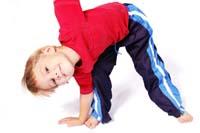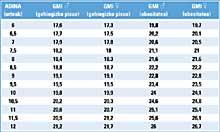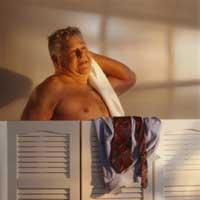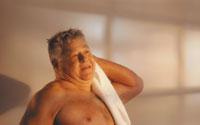From fat child to adult
2010/07/17 Galarraga Aiestaran, Ana - Elhuyar Zientzia
The study, dubbed Apache Bird Diabetes, has been published after 11 years of school follow-up. Previously, in 2009, a review was conducted of all the experiments that have been carried out to reduce the weight of obese children through physical exercise, and it was found that in three years they had only lost an average of 90 grams.

The organization's researchers wanted to know why. As is known, there is a direct relationship between childhood obesity and lack of physical exercise, the question has been answered: What is lack of exercise or obesity before? The answer has been published in the specialized magazine Archives of desease in Chilhood and, as mentioned earlier, physical exercise does not influence weight change, while overweight involves less physical exercise.
The organization of Diabetes Earlybird believes this has significant public health effects. In fact, in order for children to become healthy adults, it is essential to perform sufficient exercise in childhood, which cannot be achieved until the rate of obesity decreases.
Previous studies have shown that the tendency to obesity is still very low (before going to school) and that it is often directly related to the obesity of the same sex parent. In fact, caloric density and the amount or size of what children eat are the main causes of obesity, along with sugary drinks.
More places for all ages
However, obesity is not limited to children or Britain, and other countries are studying the necessary measures to address the problem. For example, the U.S. Department of Agriculture has conducted a study to see how increased taxes on sugary beverages would influence obesity. Specifically, they have proposed to increase the price of these drinks by 20%, leaving at a previous price without calories, tea and coffee, water, milk and some juices.
The results are significant, with an average of 37 kilocalories per adult and 43 kilocalories per child. This means that each adult would lose 1.75 kg a year and each child 2 kg a year. The decrease in the prevalence of obesity has also been calculated: From 33.4% in adults to 30.4%, the risk of overweight in children would be reduced from 32.2% to 27% and the prevalence of obesity from 16.6% to 13.7%.
Therefore, it seems that the increase in the price of these drinks can be effective to combat obesity. However, the researchers themselves point out that isolated measures are clearly insufficient. For example, in the United States, in 2006, it was decided to reduce ads for bilingual sweets and soft drinks.
The results of research conducted by the Universities of Illinois and Chicago have now been published. After analyzing the ads that children have seen between 2003 and 2007, it has been proven that they see these products in 30% less than before. However, they see ads of junk food between 12% and 20% more than before (the first is the data of children 2-5 years and the second of 12-17 years). A very big problem.
Published in Gara

Gai honi buruzko eduki gehiago
Elhuyarrek garatutako teknologia






